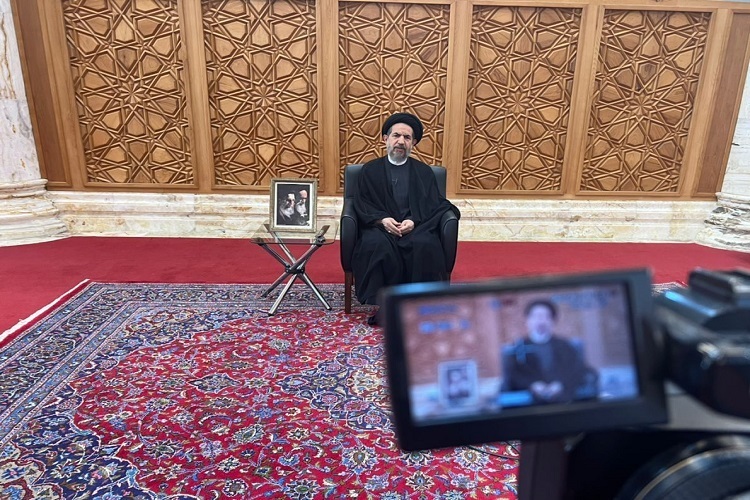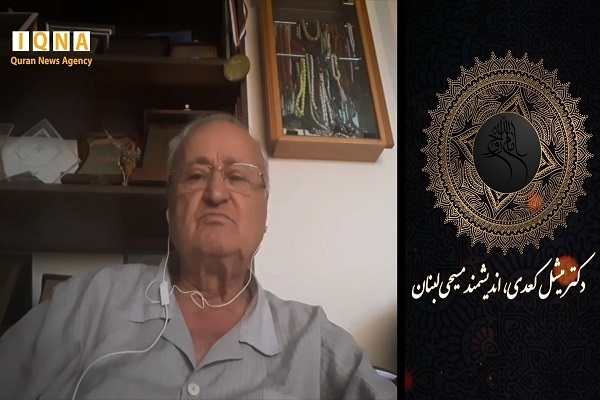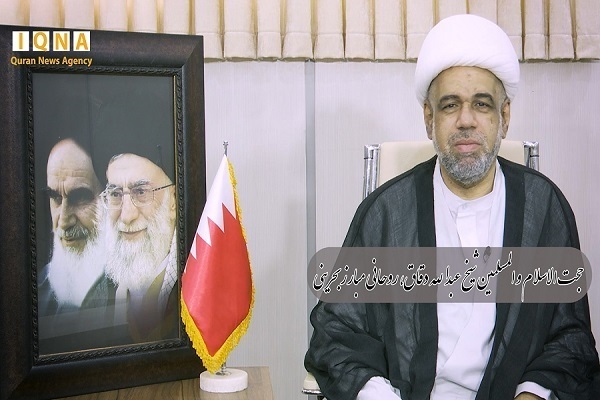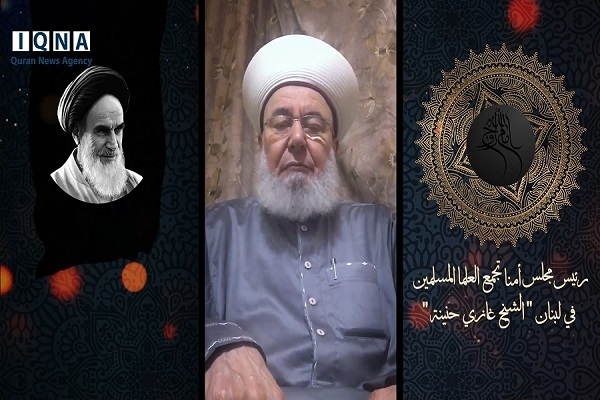Imam Khomeini’s Thoughts Discussed in Webinar

Organized by IQNA, the webinar was held on Wednesday morning with the participation of four speakers from Iran, Lebanon, and Bahrain.
Imam Khomeini a strong critique of new intl. order: cleric
Tehran Provisional Friday Prayers Leader Hojat-ol-Islam Mohammad Hassan Aboutorabi Fard was the first speaker of the event.
Imam Khomeini was a strong critique of the international order established after World War II, he said.
Imam Khomeini believed that the new international order was established according to the military, political, and economic power and capacities of the victorious states of World War II led by the United States and that the victims of this order are oppressed nations, especially Muslim countries, Aboutorabi Fard added.
Imam Khomeini believed that a political system should be based on religious principles as well as people’s support, he noted, adding that the mission of the Islamic Ummah in the view of Imam Khomeini is to resist tyrant rulers who are being supported by foreigners.

Islamic Revolution a global role model
Lebanese Christian Author Dr. Michel Kaadi stressed that Imam Khomeini turned post-revolutionary Iran into a global role model and it is natural for other nations from across the world to copy this model.
Imam Khomeini created a unique revolution on the path of nations, he said.
Imam Khomeini soon understood that awakening should move forward with a focus on a set of principles and regulations, said the author, adding that the founder of the Islamic Revolution engaged in raising of the next generation according to Islamic teachings and strengthened this approach.

Imam Khomeini’s use of Quranic concepts
Bahraini Cleric Sheikh Abdullah Al-Daghagh was the third speaker. He said that Imam Khomeini used many Quranic words in the political literature such as arrogance, jihad, and hijrat.
Of the most important features of Imam Khomeini’s revolution is that it is on one hand a Quranic movement and on the other a fight against Global Arrogance, he said.
The Islamic Revolution is not a local or regional uprising but a global revolution, Al-Daghagh said, adding that confronting the global arrogance is one of the principles of Imam Khomeini’s movement.
The origin of the world ‘istikbar’ (arrogance) comes from the Holy Quran. The word that is used in contemporary political literature is colonialism which refers to aggression on other nations and exploiting their resources but what the Quran mentions is different, he explained.

Imam Khomeini offered new image of Islam
Sheikh Ghazi Yusuf Hanina, head of the Assembly of Lebanese Muslim Scholars, was the final speaker of the webinar and pointed to some of the characteristics of Imam Khomeini.
The Islamic Revolution offered a new image of Islam with the leadership of Imam Khomeini both with regard to the role of scholars in the uprising of the Muslim Ummah and the restoration of the credibility of Islam at the international level, he said.
Therefore, Imam Khomeini gave dimension and power to the Islamic Awakening movement, he said, highlighting that the Islamic Revolution gave a new life to Islam.
Another aspect of this revolution was its initiative in establishing unity among the Muslim Ummah, Hanina added.
Grand Ayatollah Seyed Rouhollah Mousavi Khomeini, better known as Imam Khomeini, passed away on June 3, 1989 at the age of 87.
As an anti-imperialist icon, he devoted his life to standing up to Iran's former Pahlavi monarchy, a key ally of the United States, and eventually paved the way for the regime’s downfall in the 1979 Islamic Revolution.
He spent many years in exile in Iraq, Turkey and France, from where he led a swelling grassroots movement, which ultimately put an end to millennia of monarchical rule in Iran.
He came back home on February 1, 1979 after the Shah fled the country amid angry popular demonstrations. The Pahlavi regime fully collapsed 10 days later on February 11.



